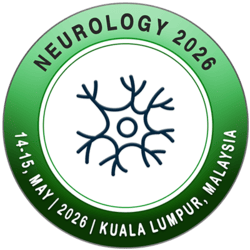Track: Neuroimaging and Brain Mapping

Session Overview:
The "Neuroimaging and Brain Mapping" session at the Neurology 2025 will explore the cutting-edge advancements in neuroimaging technologies and brain mapping techniques. Participants will gain insights into the latest tools and methodologies, including functional MRI (fMRI), diffusion tensor imaging (DTI), and advanced PET imaging. This session will highlight how these innovations are revolutionizing the understanding of brain structure, function, and connectivity. By examining recent research breakthroughs and clinical applications, attendees will learn how neuroimaging is enhancing diagnostics, treatment planning, and patient outcomes in neurology and psychiatry. The session will feature interactive components such as live demonstrations and case studies, providing practical experience in data interpretation and analysis. Engaging with leading experts, participants will discuss the implications of new technologies for both research and clinical practice, ultimately fostering a deeper comprehension of how these advancements are shaping the future of neurological and psychiatric care.
Recent Development:
Recent advancements in neuroimaging and brain mapping have led to significant discoveries and innovations. High-resolution imaging techniques, such as ultra-high field MRI, now allow for more detailed visualization of brain structures, facilitating better differentiation of neural circuits and anatomical details. The field of connectomics has progressed with the development of comprehensive brain connectivity maps, and techniques like Diffusion Spectrum Imaging (DSI) have enhanced our understanding of neural networks and their associations with neurological and psychiatric disorders. Resting-state fMRI has provided valuable insights into intrinsic brain networks and connectivity patterns, aiding in the identification of biomarkers for psychiatric and cognitive conditions. Multimodal imaging, which combines fMRI, PET, and EEG, offers more comprehensive assessments of brain function and structure, improving diagnostic accuracy and treatment planning. Successful outcomes include the early detection of neurodegenerative diseases, personalized treatment plans based on brain connectivity patterns, and improved surgical planning with detailed brain maps. Innovations such as AI algorithms for analyzing neuroimaging data, real-time imaging technologies, and portable imaging devices are expanding accessibility and accuracy. Robots play a crucial role in robotic surgery for precise neurosurgical procedures, assist with imaging equipment positioning, and enhance data analysis through AI-driven systems. Collectively, these advancements drive forward our understanding of the brain and enhance clinical outcomes in neurology and psychiatry.
Sub-Tracks:
High-Resolution Imaging
Focuses on advancements in ultra-high field MRI and other high-resolution techniques that enable detailed visualization of brain structures and neural circuits, enhancing anatomical precision and diagnostic capabilities.
Connectomics
Explores the development of comprehensive brain connectivity maps through techniques like diffusion spectrum imaging (DSI), improving our understanding of neural networks and their role in neurological and psychiatric disorders.
Functional Neuroimaging
Covers advancements in functional MRI (fMRI) and other methods to map brain activity and connectivity patterns, offering insights into brain function during various cognitive and emotional tasks.
Multimodal Imaging
Examines the integration of different imaging modalities such as fMRI, PET, and EEG to provide a more complete picture of brain function and structure, improving diagnostic accuracy and treatment planning.
AI and Robotics in Imaging
Investigates the application of artificial intelligence and robotics in neuroimaging, including automated data analysis, real-time imaging, and robotic-assisted procedures, enhancing precision and efficiency in brain mapping.
Diffusion Tensor Imaging (DTI)
This technique is used to map and characterize the three-dimensional diffusion of water in brain tissue, providing insights into the white matter tracts and connectivity.
Magnetic Resonance Spectroscopy (MRS)
This imaging modality measures the concentration of specific brain metabolites, offering insights into brain metabolism and biochemical changes.
Quantitative Imaging Biomarkers
Focuses on the development and application of quantitative measures derived from neuroimaging data to assess brain structure, function, and pathology.
Neuroimaging Genetics
Explores the relationship between genetic variations and neuroimaging phenotypes, helping to uncover the genetic basis of brain structure and function.
Dynamic Imaging and Real-Time Monitoring
Investigates methods for capturing and analyzing brain activity in real time, providing insights into brain function and connectivity during various cognitive tasks.
Diffusion Tensor Imaging (DTI)
This technique is used to map and characterize the three-dimensional diffusion of water in brain tissue, providing insights into the white matter tracts and connectivity.
Magnetic Resonance Spectroscopy (MRS)
This imaging modality measures the concentration of specific brain metabolites, offering insights into brain metabolism and biochemical changes.
Quantitative Imaging Biomarkers
Focuses on the development and application of quantitative measures derived from neuroimaging data to assess brain structure, function, and pathology.
Neuroimaging Genetics
Explores the relationship between genetic variations and neuroimaging phenotypes, helping to uncover the genetic basis of brain structure and function.
Dynamic Imaging and Real-Time Monitoring
Investigates methods for capturing and analyzing brain activity in real time, providing insights into brain function and connectivity during various cognitive tasks.
Scientific Highlights
- Neurology
- Neuro Anatomy
- Mental Health and Psychiatry
- Geriatric Neurological Disorders
- Neuromuscular Diseases
- Brain Tumor and Neuro-oncology
- Cerebrovascular and Critical Care Neurology
- Clinical Neurophysiology
- Central Nervous System
- Neuro-Ophthalmology
- Pediatric Neurology
- Neuroimaging and Brain Mapping
- Neurogenetics and Neurodegenerative Disease
- Behavioral and Cognitive Neuroscience
- Neurochemistry and Neuropharmacology
- Spinal Neurosurgery and Neural Transplantation
- Neuro Robotics and Neuro Modulators
- Addiction and Adult Psychology
- Brain Stimulation and Computational Neuroscience
- Neural Control of Micturition
- Parkinson's Disease


